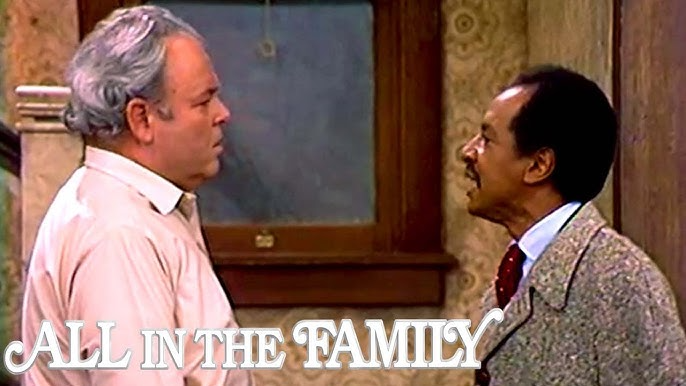
When All in the Family first aired in 1971, it was a groundbreaking show that shocked audiences, addressed controversial topics, and sparked conversations that still resonate today. The show, created by Norman Lear, pushed boundaries in ways that no other sitcom had dared to do before. At the center of it all was Archie Bunker, the politically incorrect, working-class bigot played by Carroll O’Connor. Archie’s remarks were blunt, often offensive, and unapologetically racist, sexist, and xenophobic.
But as All in the Family became a cultural phenomenon, the question loomed: Did the show go too far? Was it pushing the boundaries of social commentary, or did it normalize harmful stereotypes under the guise of humor?
The Birth of Archie Bunker: A Character Too Real for TV?
Archie Bunker was, without a doubt, the most divisive character on television at the time. Played by O’Connor, Archie was a man entrenched in his own outdated values and prejudices. His catchphrase, “Meathead,” used to describe his son-in-law Mike Stivic (played by Rob Reiner), was one of many offensive remarks he would toss out without any filter. But it wasn’t just the jokes that made Archie memorable. It was the rawness and bluntness with which he expressed his views on race, gender, and class.
In the early 1970s, racial tensions were high, and many people viewed All in the Family as a mirror of societal issues, not as a vehicle for hatred. Archie’s character was purposefully extreme in his views to highlight the absurdity of his bigotry. And yet, despite this, some viewers struggled to distinguish between satire and reality. Was Norman Lear using Archie to show the ignorance of a certain class, or was the show merely reinforcing the stereotypes it was trying to critique?
Carroll O’Connor’s Battle with the Role: A Personal Struggle
O’Connor’s portrayal of Archie Bunker was so authentic that many viewers began to think of the actor as the character himself. This was a double-edged sword for O’Connor. While the role brought him fame and accolades, it also sparked controversy. O’Connor, a liberal in real life, was often mistaken for endorsing Archie’s outdated views. In interviews, he confessed that playing a character who espoused such offensive beliefs was not always easy, especially when the lines between the character and the actor began to blur.
He had long said that while he hated the ideas Archie represented, he understood the purpose of the character. Archie was meant to make people uncomfortable, to challenge social norms, and to hold a mirror up to society’s flaws. However, O’Connor was also aware of the impact his character had on the audience, and he expressed concerns about people misunderstanding the intent of the show. The responsibility that came with playing a character like Archie weighed heavily on him.
Controversy and Legacy: Is Archie Bunker to Blame?
All in the Family was revolutionary because it didn’t shy away from hard topics. It tackled issues like racism, sexism, homophobia, and class struggles in a way that no show had before. But was it too much? Some critics felt that by allowing Archie’s bigoted views to be broadcast weekly, the show was unintentionally normalizing them. Others argued that the satire was effective precisely because of its boldness.
Despite the criticism, All in the Family ran for a decade and remains one of the most influential sitcoms in TV history. It not only changed the way sitcoms were written, but it also set a precedent for shows that used humor to address serious societal issues. Today, the show is remembered as a classic, but its legacy is not without controversy. Archie Bunker’s character remains a symbol of both the brilliance and the potential pitfalls of using humor to address sensitive topics.
